A building inspection in Auckland is crucial for the safety, compliance and longevity of properties in one of New Zealand’s busiest real estate markets. Whether you are buying, selling or maintaining a property a qualified building inspector will give you a detailed report on the structure, systems and components. Their expertise will protect your investment and ensure you comply with local building codes and avoid costly and legal headaches. With Auckland’s growth happening so fast professional building inspections are key to making informed decisions and maintaining property standards.
What is a building inspection?
A building inspection is a detailed report on a property’s structure, systems and components to look for any defects or hazards. Done by qualified inspector these inspections ensure buildings comply with local codes and standards so you can have peace of mind as a buyer, seller or owner.
What Happens During the Inspection?
Inspectors look at many parts of the property during an inspection. They check:
- Foundations and structure
- Roofing and gutters
- Plumbing and electrical systems
- Insulation and ventilation
- Moisture levels and mold
- Exterior and interior finishes
They write a report with their findings and any concerns.
How Does Building Inspection Work?
In Auckland, Building inspections follow a few steps:
- Scheduling an inspection.
- Looking at plans and documents.
- Examining the property on-site.
- Writing a report of findings.
- Suggesting repairs or changes needed.
Why Might My Inspection Fail?
A building inspection might fail if there are:
- Structural problems or damage.
- Non-compliant plumbing or electrical systems.
- Poor workmanship or bad materials.
- Unfixed moisture issues or mold.
- Inadequate fire safety.
What Happens If You Want to Make a Plan Change?
If you change your building plans, you need to tell the local council. They might ask for a new inspection to check if the plans follow the rules.
What Happens After the Inspection?
After the inspection, you get a detailed report. If everything looks good, you can move forward. But if there are problems, you might need to fix them before getting approval.
What Happens If My Inspection Fails?
If your inspection fails:
- You’ll get a list of things that don’t meet standards.
- You need to fix these issues quickly.
- A re-inspection will be done to check if everything is fixed.
Why Is Building Inspection Important in Auckland’s Real Estate Market?
In Auckland’s busy real estate market, inspections are key. They help:
- Buyers understand repair costs and risks.
- Sellers fix problems early to increase value.
- Investors ensure compliance and avoid legal issues.
How Much Does a Building Inspection Cost in Auckland NZ?
In Auckland, inspection costs vary. They depend on the property’s size, location, and complexity. On average, expect to pay NZD 400 to NZD 800 for a standard inspection. Larger or more complex properties might cost more. Seeing this as an investment in your home can save you money in the long run.
Factors Influencing Inspection Costs
Several things affect the cost of a building inspection in Auckland. Older homes or unique buildings might need more detailed checks, raising costs. Location also matters; remote areas might cost more due to travel. Budgeting for these costs is important when buying a home.
Value of Investing in a Quality Inspection
Getting a building inspection in Auckland, NZ might seem like an extra cost. But it’s a key step in buying a home. It shows any repairs needed now and future maintenance issues. This helps buyers negotiate better or prepare for repairs, protecting their investment.
Knowing the costs and benefits of inspections helps buyers make smart choices. It ensures a smooth move into homeownership.
What Does Building Inspection Cover?
A detailed building inspection looks at:
- Structural elements
- Roofing and exterior
- Interior walls, ceilings, and floors
- Plumbing and electrical systems
- Moisture and insulation levels
How Building Work Is Inspected
Inspecting building work means:
- On-site checks during important construction stages.
- Checking if work follows approved plans and codes.
On-Site Requirements
Who and What You Need Onsite
- Approved building consent and plans.
- Relevant compliance certificates.
- Access to the site for inspectors.
Access to Above-Ground Areas
Inspectors need safe access to roofs, balconies, and other high places. This is to check compliance and safety.
Verification of Construction and Inspection Findings
Inspectors compare the construction to approved plans. They document any differences or problems.
Non-Compliant Building Work
If non-compliance is found, a “Notice to Fix” may be given. This requires immediate action to fix the issue.
Building Inspection Types
Site Meeting Monitoring Inspection
Site meeting monitoring inspections involve regular visits during construction. They ensure work follows approved plans and is on track. This helps spot problems early and keeps construction on schedule.
Erosion and Sediment Control
This inspection checks if measures to stop erosion and sediment runoff are working. It prevents environmental damage during construction.
Fire-Resistant Lining
Fire-resistant lining inspections check if walls, ceilings, and other areas meet fire safety standards. They use approved fireproof materials.
Concrete Construction
Concrete construction inspections look at the quality and compliance of foundational and structural concrete work. They check the mix quality, curing processes, and reinforcement placement.
Steel Construction
Steel construction inspections examine the structural steel framework of a building. Inspectors check if fabrication, welding, and installation meet engineering specifications.
Shelf Angles
Inspecting shelf angles involves checking their stability and proper installation. This ensures structural support and safety.
Notice to Fix Inspection
When a “Notice to Fix” is given, a follow-up inspection is done. It confirms that the issues have been fixed and the property meets building regulations.
Audit Inspection
Audit inspections give a detailed review of a building’s construction quality and compliance. They often happen during or after construction to check if all standards are met.
11-Month Inspection
This inspection is done near the end of a 12-month warranty period. It finds any defects or issues that need fixing before the warranty ends.
24-Month Inspection
A 24-month inspection checks the property’s durability and performance over time. It ensures construction remains compliant and finds any long-term issues.
Top Qualified Building Inspector in Auckland
Alert Building Inspections qualified building inspectors in Auckland offer professional inspection services. They ensure your property meets all safety and compliance standards. are committed to providing comprehensive and accurate reports. Whether you’re buying, selling, or need a property assessment, we ensure every detail is thoroughly examined, giving you the confidence to make informed decisions. Check sample report!
Alert Building Inspections Services
Pre-Purchase Building Inspection
Pre-Purchase Home Inspection
Pre-Sale Building Inspection
Commercial Building Inspection
Written Building Report
Verbal Building Report
Meth Testing Report
Safe and Sanitary Report
New Build Handover Report
Moisture Testing
What Alert Building Inspections Check in Auckland
Alert building inspections in Auckland cover all critical aspects of a property. Ensure safety, compliance, and peace of mind for property owners and buyers.
Moisture / Leak Detection and the Weathertightness Matrix
Underhouse and Sub-Floor Structure
Flooring
Wall Cladding
Spouting and Downpipes
Plumbing and Drainage (general)
Decks
Driveway
Pests
Accessory Units
Foundations
Borer Detection
Roof space and Structure
Exterior Joinery
Roof Cladding
Insulation
Hot Water System
Site items (retaining walls, etc)
Impending Maintenance
Workmanship
Contact Info
Google Rating: 4.9/5
Website: Alert Building Inspections
Email address: alertbuildinginspections@gmail.com
Phone: 027 450 5010
Note: Alert Building Isnpections Offer Building Inspection Services Wellington, Christchurch, Northland and Acrros the Auckalnd
Building Inspection Booking Process
Booking a building inspection with us is simple and convenient. You can schedule your inspection online through our website, offering a hassle-free process to choose a time that works best for you. Alternatively, bookings can also be made over the phone by calling us directly at 0274505010.

